Teaching
I. Courses Taught
Interactive Distance Workshop for Pulp and Paper Basics
Co-sponsored by North Carolina State University and TAPPI
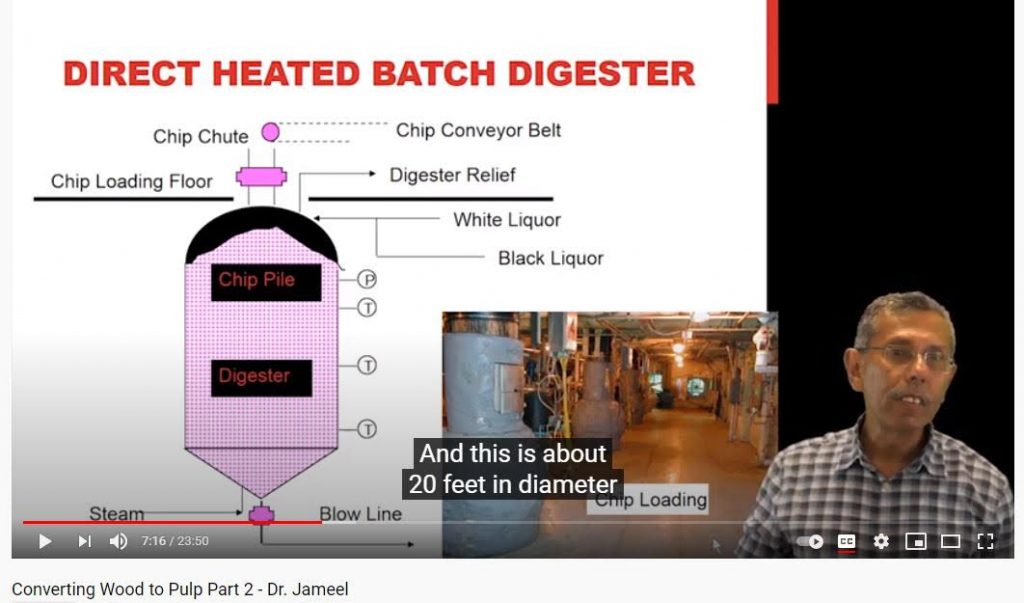
Upcoming Course Dates: June 7-11, 2021
Location: Delivered by Zoom Distance, Broadcasted from North Carolina State University, Raleigh, North Carolina
This hands-on workshop will provide a broad overview of Pulping, Bleaching, Chemical Recovery, Recycling, Papermaking and Converting. The 5-day course will consist of presentations in the morning and interactive laboratory and pilot-plant exercises in the afternoon. Students receive a PDF of course notes with about 400 pages of reference materials.
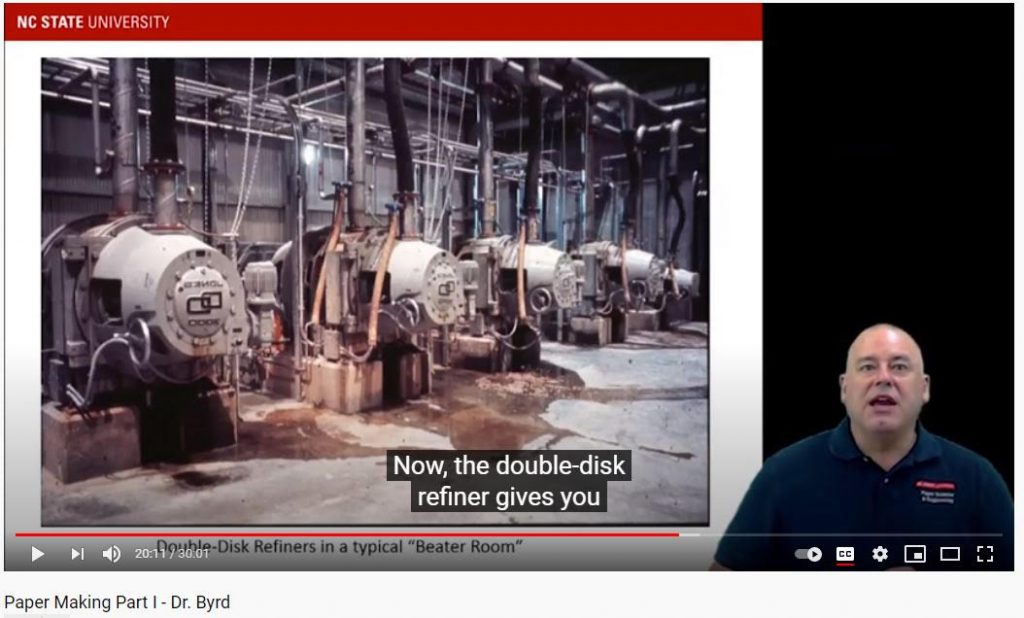
Workshop material discussed in the mornings will be re-emphasized in interactive lab and pilot plant videos/calculations/exercises covering wood structure, wood processing, pulping, bleaching, pulp cleaning, pulp analysis, papermaking, recycling, refining, converting and paper testing for increased understanding and retention.
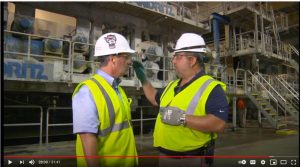
This introduction level workshop is appropriate for technical and non-technical individuals with a desire for a laboratory focused course to understand and appreciate the basics of pulping, bleaching, recovery, recycling, papermaking and converting operations.
For questions related to course content or individualized instruction, please contact Dr. Richard Venditti (919) 515-6185 or richardv@ncsu.edu.
For more information and to register online, please visit the course page.
PSE 475 Process Control
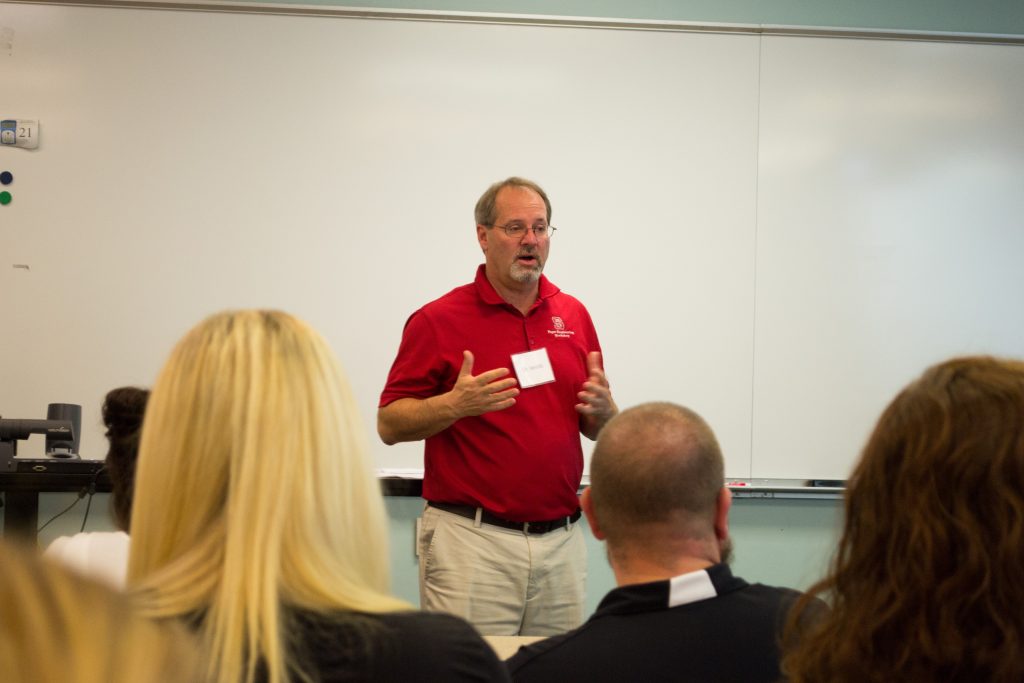
This course describes methods used to model dynamic chemical processing systems with linearized approximations. The tools to analyze the dynamic response of multiple sub-processes combined in complex configurations is described. The implementation, operation, and optimization of a single loop feedback control process is described. Advanced process control techniques such as cascade control, feedfoward control and deadtime compensation control are described. The course has a major laboratory portion in which students perform process modelling and validation, the instruments and organization of instruments in a feedback control loop, the operation of a feedback control process, programmable ladder logic exercise, and a total pulp mill simulator utilizing a operator interface, and the optimization of a feedback control process. Download PDF version of course syllabus.
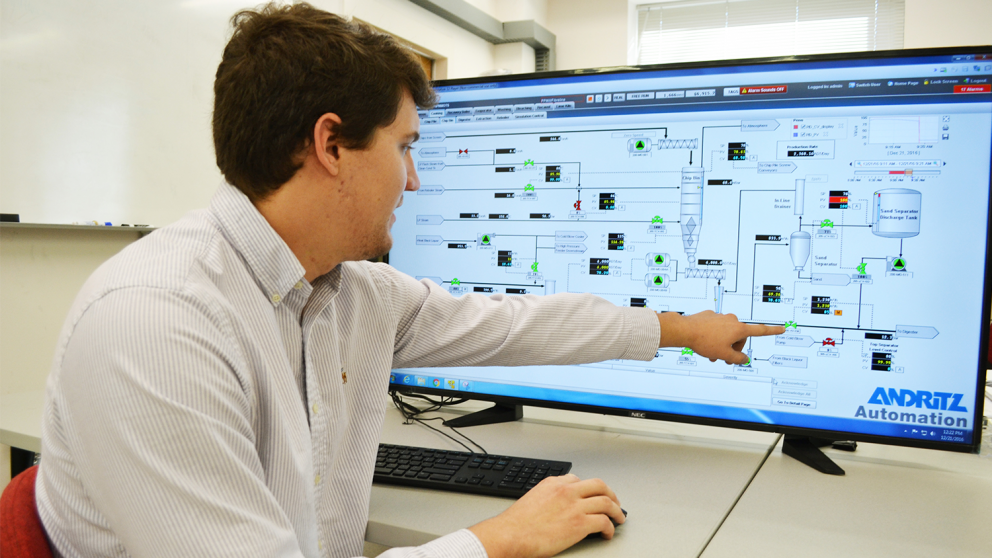
An announcement article describes the implementation and benefits of the pulp mill simulator for teaching.
Click here to access the article.
PSE 476/ FB 576 Environmental LCA
In the Environmental LCA course we teach students how to think with a “systems” approach rather than a “parts” approach. Imagine that you are a starving college student and need to sell parts off your car to survive. Systems thinking would look at the car and its objective and understand the overall goal of the car; the student would then sell parts that are not needed to perform the overall goal of transport. A parts thinking approach with a desperate and rushed student might sell the most valuable parts or most easily sold parts first, even if these prevented the car for providing transportation, destroying the capability of the car. Imagine the earth as the car and society as the student. We take from the environment of the earth for our needs. Only with systems thinking can we take from the earth and keep the earth sustainable and able to support life. When I teach LCA in our course, this is our underlying driving principle. LCA teaches us what decisions to meet societies needs are estimated to be in the best interest of the earth and society, promoting sustainable healthy earth and people.
Societal needs always have a consequence with regards to the environment. The efficient use of the world’s resources is paramount. Several options exist when trying to determine which method best serves mankind and its environment. Life cycle analysis (LCA) methods offer a systematic approach to providing guidance in these decisions. Mastering LCA techniques is an integral part of a student’s preparation for a career that is professionally, environmentally, and socially responsible. This course is an overview of the various aspects of conducting and interpreting an environmental life cycle analysis on a product or service. Students will learn how to construct a life cycle analysis goal and scope, inventory, assessment and interpretation. Skills in the critique and communication of a life cycle analysis will be developed. The course includes an overview of the following life cycle stages: raw materials, energy, transportation, production, use, and end of life. The course will have an emphasis on systems thinking. The course is targeted for students in any science or engineering program. Download PDF version of syllabus.
Paper Recycling Advanced Topics: Distance Course
This distance education course describes the paper recycling industry, unit operations in paper recycling, the changes in paper fibers upon recycling, the impacts of recycling on the environment, major paper recycling facilities, and other special topics in paper recycling of interest to advanced pulp and paper students. Approximately 30 videotaped lectures, from Dr. Venditti and several leading experts in the recycling field, several reading assignments from the course textbook and several research papers, and six homework assignments are included in the course. A major portion of the course involves an in depth study of a focussed area of paper recycling chosen by the student. The project involves the writing of a literature review and a research proposal.
WPS 355 Unit Operations in Pulp and Paper
Selected topics in chemical engineering as applied to problems in the Pulp and Paper Industry. Emphasis on computational practice. Emphasis will be on basic principles of fluid dynamics, heat transfer, mass transfer, and thermodynamics. Download PDF version of syllabus.
II. Instructional Development

In 2019 I received a software donation from International Paper Company, the IEPM Simulator, and was trained on the program. Value $250,000.
Software packages have been used in order to develop interactive, hands-on activities for the courses. This includes using Sustainable Minds to perform LCA in PSE 476, to use Visual Basic Simulator for Process Control Dynamics in PSE 475, IDEAS software to simulate an entire pulp mill (donated by Andritz), and LogixPro in PSE 475 to simulate Programmable Logic Control (PLC).
The PSE 475 Process Control Lab has three laboratory feedback control experiments one each in mass, component and energy control, one PLC experiment, one electronics circuit experiment, one industrial equipment/ feedback control loop experiment, and one industrial pulp mill simulation experiment. The lab also utilizes a practicum to evaluate hands-on knowledge of control systems.
A $750,000 donation was secured from Andritz Automation in the summer of 2016 for a mill-wide dynamic (real time) simulator with the same human-machine interface, interlocks, logic control and feedback control loops as a real pulp mill. (see Figure above and https://cnr.ncsu.edu/fb/2016/12/27/simulating-success/ for news release. This article also appeared in Paper 360 in the Nov/Dec 2017 issue.)
In PSE 476 Environmental Life Cycle Analysis several software packages have been used as teaching tools, OpenLCA, SustainableMinds, GREET and AWARE.
Dr. Venditti has secured several donations for image analysis software used in teaching laboratories within the department, valued around $50,000.